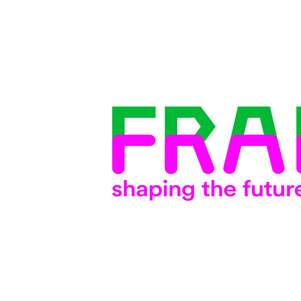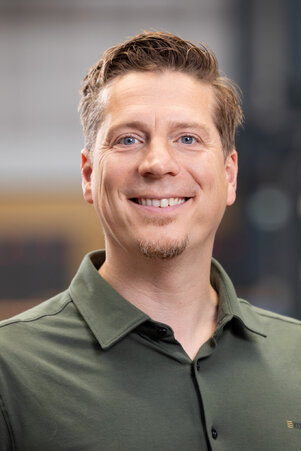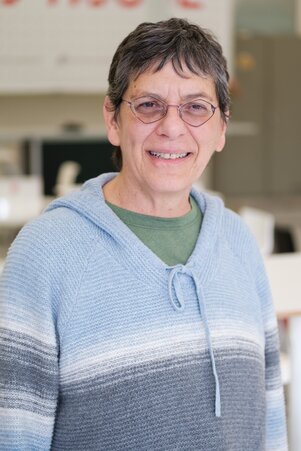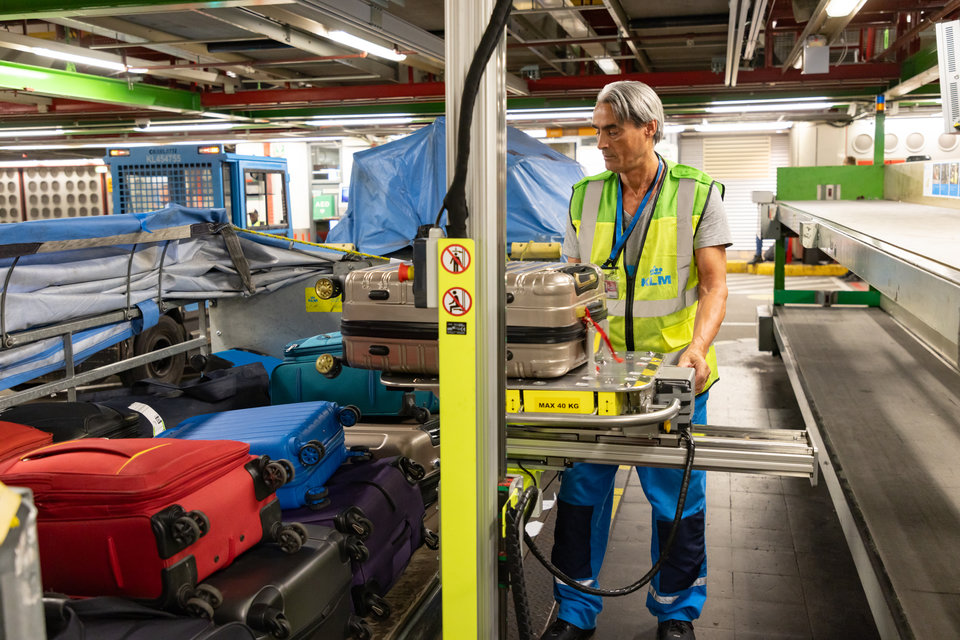FRAIM: how we work
FRAIM aims to shape a future of work that is not only viable, but also meaningful and just. We take a transdisciplinary approach to research and innovation: integrating academic knowledge (from e.g., engineering, design, and social sciences) with pragmatic knowledge from workers, and organisations; using co-created and jointly decided innovation processes. We combine quick innovation sprints with long-term disciplinary, interdisciplinary, and transdisciplinary knowledge production. We organise our approach to allow for emergent knowledge, meaning we can work with what arises in the moment. This is hard to plan for, but important to recognise and use for further steps. We aim to connect learnings about the future of work from different sectors, to cross-fertilise insights and provide a more impactful knowledge platform.
How do we even get started to shape work that is meaningful, just and viable, and how do we combine different perspectives, experiences and skills to do so? The FRAIM approach is based on four key elements.
-
Our values: tying together processes that target technical viability with processes that address values like meaningful and just future of work
-
Our focus: physical work and the phenomena of worker-robot relations
-
Our process: transdisciplinary research and innovation in practice, with and for workers
-
Our people: who do we involve and how do we work together?
“Shaping the future of work requires us to bring the whole of ourselves, in order to connect with people and work across different perspectives, needs and values. That takes time, patience, reflection and dedication and a long-term perspective – but once you start, it soon starts giving the energy, trust, honesty and understanding that it’s worth spending that long time together.”
David Abbink, Scientific director FRAIM
Our values: viable, meaningful and just
When aiming for viability, there are established processes that describes innovation processes between ideas, concepts, protypes, and scaled up products. We see that the expectations around emerging technological capabilities in robotics and artificial intelligence are huge. Often, such technologies are seen as a quick fix, but in practice turn out to be more difficult. Work processes are often so complex, varied, and dynamic that they are beyond current robotic capabilities, even in cutting-edge academic labs, let alone in commercially available products. As a result, the innovation, implementation, and adoption of robotic systems alone does not lead to the desired impact.
Yet the impact of innovation on work do not end with a successfully implemented innovation: FRAIM is interested in the attractiveness and meaningfulness of the work as a result of that innovation. That puts worker’s experiences, needs and values at the forefront, along with what we as a society deem humane. Taking this into account during innovation processes is a huge challenge.
Our focus: physical work and the phenomena of worker-robot relations
We focus on physical work processes, and the potential for cognitive robotics, that learn how to deal with variability around humans. Our curiosity starts ‘phenomena-driven': what do we encounter on the work floor, what do workers experience there, how do they manage their work in the organisational context, could robotics be beneficial or not, and if so: what might change? Specifically, we focus on Worker-Robot Relations (WRRs): the inherently interdependent relational dynamics between workers, robots and organisation.
“At FRAIM we engage in embodied, experiential & actionable ways of knowing – immersed in current phenomena, with a deep appreciation for socio-technical histories, and proactively inspired towards just and meaningful futures.”
Deborah Forster, Transdisciplinary Lead, FRAIM
We are interested in understanding their short-term and long-term impact on people involved in the work process, the organisation and society in general. We deliberately take a relational rather than an interactional perspective, to emphasise the evolving, reciprocal and long-term aspects of WRRs. Cognitive robots may learn new abilities over time, which should be aimed towards worker autonomy, competences and co-worker relations. Workers will need to be involved in the design of WRRs and will need to have a say in how they may learn to work with a cognitive robot over time, to satisfy professional and personal needs: a co-adaptation that evolves over time. Organisations will learn over time how WRRs create potential for accelerated innovation, new business opportunities and changes in the business ecosystem.
Our process: transdisciplinary research and innovation
Transdisciplinarity is sometimes used as a buzzword or used interchangeably with multi- or interdisciplinarity. At FRAIM we are quite specific in our use of the term, recognizing multiple dimensions of rigour and quality in practice, including shared values, knowledge Integration, intertwining research and innovation, and leveraging participatory practices and joint decision making to enable emergent actionable knowledge.
“I believe weaving together innovation and academic practices is key to tackling the complex societal issues we're facing today. The interconnectedness of challenges needs not only to be addressed more, but to be taken into account in the whole process of innovation. It needs to continue into implementation and have an effect on academic research. I believe we need to consciously decide what to work on and why.”
- Eva Verhoef, Innovation Lead FRAIM
Shared values and mission-driven research and innovation.
Interdisciplinary knowledge integration.
Intertwining research and innovation processes (challenging in every sector)
Participatory practices and joint decision making
Enabling emergent knowledge
We start by reflecting on and revealing our values frameworks and those of our stakeholders and forge a shared mission we then revisit throughout the process. Read more about this in Our vision.
We believe it is helpful to invest in integrating academic practices (methods, theories, epistemologies) which can widely differ in engineering, design, and social sciences. This includes translating learnings into educational practices for training students, PhD and postdocs, and academic staff. This helps organising academia to learn from professional and other pragmatic and experiential ways of knowing, and jointly create, sustain and grow an actionable knowledgebase
Academic trajectories are often discipline specific and do not easily map onto typical innovation cycles. We are also concerned with how to collect and resurface the ideas and opportunities that often fall through the cracks while looking for the ‘best’ solution or the ‘most novel’ piece of knowledge.
We are going beyond sporadic co-creation to integration with pragmatic knowledge and experience, alongside joint decision making – we are striving for equal partnerships between and within organisations.
We build trust from the inside-out between the transdisciplinary taskforce and a counter worker team through close joint immersion in the workplace. We then create moments where all stakeholders are present to counter existing power relations. In these moments joint exploration and shared reflections often crystalise into actionable new insights that are witnessed by the whole system.
Our people
To practically engage FRAIM in a work context, we appoint and mentor transdisciplinary taskforces. A transdisciplinary taskforce is a tight-knit team appointed full-time to a work context. They jointly visit the work floor of an organisation together, engage in grounding activities (e.g., worker shadowing), revealing implicit and tacit knowledge of workers and organisations, exploring and imagining future work processes, building relations with workers to jointly learn about current and future work – and how technology might impact that. The transdisciplinary taskforce is always paired with a counterpart team of workers in that organisation. Jointly they are the engine of knowledge creation. They are mentored by academic faculty from the Worker-Robot Relations consortium. The team works together with (and are guided by) at least three senior experts: in innovation, academic research and in knowledge integration. Our transdisciplinary taskforce consists of at least an engineer (typically robotics, or human-robot interaction), a designer, a work psychologist, an organisational scholar, an innovation expert and one or more domain specialists for the sector we are working with.
Contact

- +31 (0)15 760 1600
- info@fraim.nl
-
Julianalaan 67
2628 BC Delft
Want to know more?
Academic Publications and Workshops
Barriers and Enablers to Transciplinarity in Practice
First Worker Robot Relations Workshop




